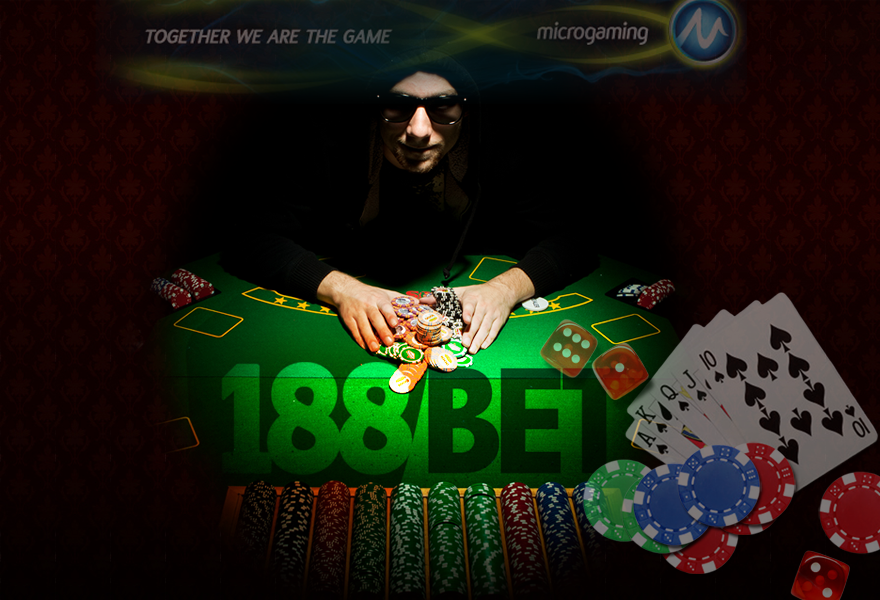Online gaming provider 188BET recently launched Microgaming’s poker software, one that includes anonymous tables and signifying a move to begin offering its online poker clientele the choice of playing in tables where player profiles are unavailable, including aliases, avatars, locations, and notes. 188BET’s decision to introduce anonymous tables comes a little over a year after Bodog fully committed itself to the model when it launched its Recreational Poker Model in late 2011.
 For all the criticisms and vitriol thrown at Bodog when it launched its Recreational Poker Model, anonymous tables seemed to have gained a foothold in the industry, particularly in light of 188BET’s recent move to launch its own (slightly different) version.
For all the criticisms and vitriol thrown at Bodog when it launched its Recreational Poker Model, anonymous tables seemed to have gained a foothold in the industry, particularly in light of 188BET’s recent move to launch its own (slightly different) version.
Bodog’s Recreational Poker Model and its anonymous tables have always had one objective in mind: to protect the interests of the net depositing players by trying to create a more level playing field. It’s a field that player tracker tools and data-mining sites won’t get access to, allowing the site’s casual players to enjoy the game without having to worry about being hunted down by the poker sharks who rely on tracking software to determine where the prey is playing.
When Bodog launched this model a little over a year ago, it came with the expected backlash from a lot of established players in the online poker circuit, a lot of whom complained in their own choice language about losing a critical advantage that these data-mining sites and player tracking software offered.
However, that’s exactly what Bodog was striving to achieve with its anonymous tables; keep the Rottweilers on a leash and let the poodles scamper about and enjoy themselves. The model created an eco-system where the sharp poker players aren’t just draining money away from the recreational players, thereby enabling everyone to rely on their skills more than using data-mining sites and HUDs as advantageous crutches.
Now, the industry has taken notice, as evidenced by 188BET’s decision to launch their own anonymous tables that are part Microgaming’s poker software. The gambling Industry Swami himself, Calvin Ayre, called this move a year ago when he predicted that at least one other poker network would eventually adopt this model as its own.
It must be noted though, that Microgaming already used a limited version of anonymous tables before Bodog, but according to Bodog Network vice president Jonas Odman, their interpretation and implementation of the software differed from Bodog’s version. “At those sites, [anonymous tables] are an alternative to normal tables,” Odman noted back in December 2011 when the Bodog Model had just been launched.
The problem with having anonymous tables as an alternative is that net depositing players – the group identified as the lifeblood of online poker – do not realize the benefits of sitting in an anonymous table. Instead, they sit down at non-anonymous tables, putting themselves at risk of having their profiles tracked. “The winning players then follow the net depositing players, which means that nobody plays at the anonymous tables,” Odman noted.
Awareness still falls on the shoulders of the players themselves, but what happens when these casual players are there to enjoy themselves without knowing what an anonymous table really is? The responsibility of offering a level playing field is on the operator and Microgaming’s optional anonymous tables aren’t exactly “optional” if they use them more as marketing tools and the casual players don’t know what it’s all about in the first place.
Nevertheless, it’s refreshing to see a major Asian operator taking a similar approach to Bodog and offering its own recreational poker model. It would’ve been better if 188BET decided to make all their tables anonymous to really level the playing the field. In the end though, the benefits of having anonymous tables is becoming more evident, proving that there’s a lot more to this model than the critics have slammed it to be. Heck, it could even potentially be the future of the industry.
Poker has, and will always be – and is supposed to be – a game of skill. With anonymous tables, there’s no other option than to pit those skills to the test against the rest of the table. That’s how poker should be in the first place.
